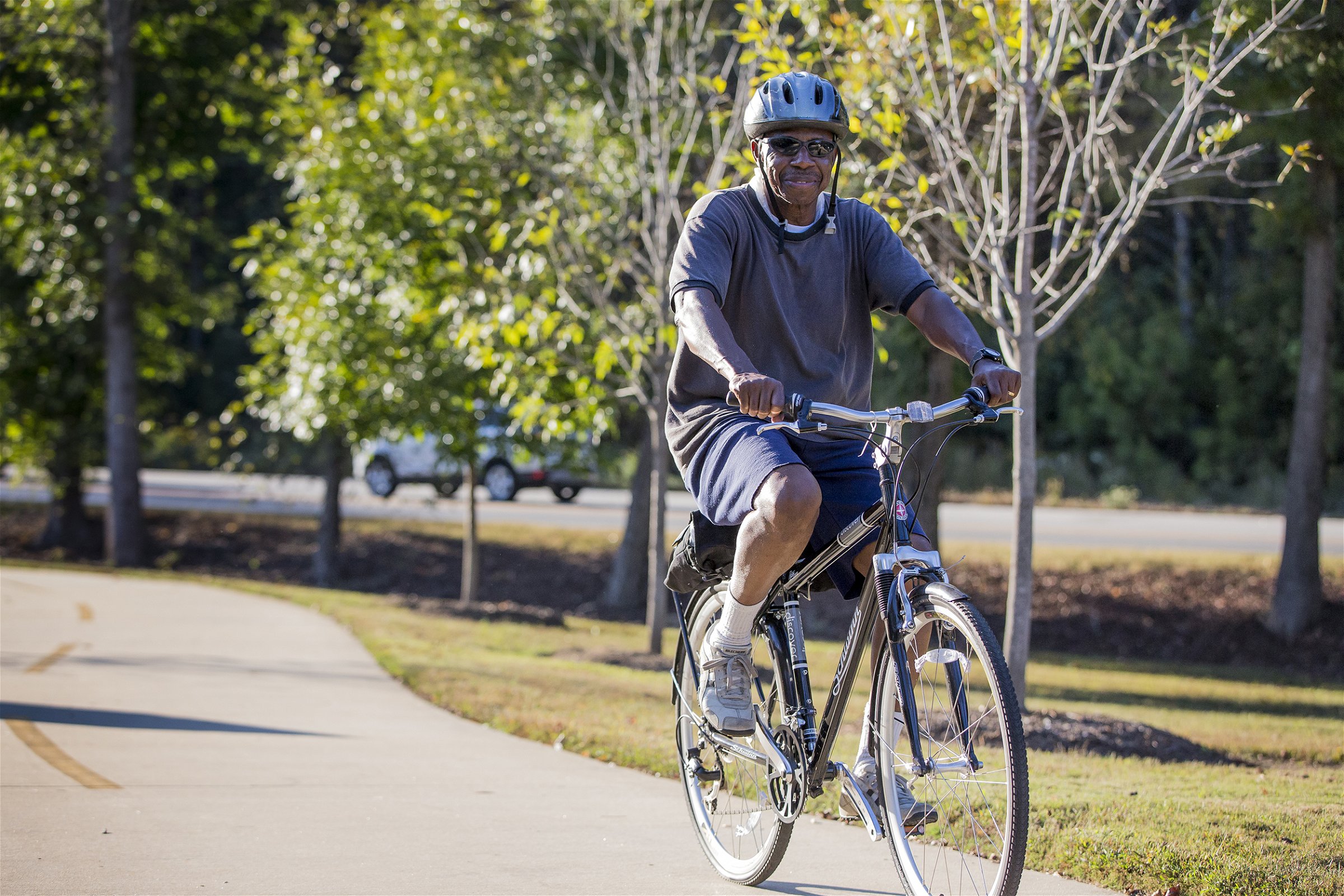Posted on: Dec 18, 2017
By John Orr, ARC Transportation Access Manager
 Expanded transit service. Improved roads and intersections. Miles of new multi-use trails.
Expanded transit service. Improved roads and intersections. Miles of new multi-use trails.
These are among the highlights of the latest update to the Atlanta Regional Commission’s Transportation Improvement Program, or TIP.
The TIP update includes 92 projects that address key transportation needs, promising to improve mobility and quality of life while offering residents more options for getting around metro Atlanta.
In all, ARC is allocating $293 million in new federal transportation dollars through 2023 for projects across the region. With local matches of at least 20 percent, the total amount of new funding allocated in the TIP exceeds $400 million.
5 things to know about the Transportation Improvement Program
Takes a balanced approach to improving mobility in the Atlanta region
There’s no single solution to metro Atlanta’s traffic issues. That’s why the TIP includes a range of projects and service enhancements – expanded transit service, increased capacity on key thoroughfares, and improved bicycle and pedestrian infrastructure.
Developed in collaboration with our regional partners
ARC made sure that the projects funded in this TIP update reflect the top priorities of local governments and the region’s transportation agencies, which submitted applications for funding last May. ARC evaluated projects based on a combination of performance and cost-effectiveness measures. The plan was developed in collaboration with ARC’s regional partners, including the Georgia Department of Transportation, the State Road and Tollway Authority, MARTA, and local governments.
Dozens of high-priority local projects are funded, including:
- South Barrett Parkway reliever (Cobb)
- SR 92 (Old Alabama Road) intersection improvements (Cherokee)
- Valley Hill Road bridge replacement (Clayton)
- Right-of-way for widening of SR 81 and Rock Quarry Road (Henry)
Subscribe to ARC
Sign up to receive our newsletter, surveys and important updates.
Subscribe to ARC
Sign up to receive our newsletter, surveys and important updates.
Subscribe
Expands transit options across the region
A key way to improve mobility in the region is to provide more options for people to get around without driving their cars. The TIP addresses this in part by providing funds to expand transit service throughout the metro area:
- Gwinnett County Transit – Extends weekday service on local bus routes past midnight and reduces wait times to 30 minutes or less most of the day
- CobbLINC – Establishes Sunday service and enhances Saturday service
- Douglas County – Launches public transit bus service
- SRTA/GRTA – Xpress service expansion in coordination with the opening of the I-75/I-575 Xpress Lanes in Cobb and Cherokee; park & ride lot expansions in Rockdale County and at Sugarloaf in Gwinnett County
- MARTA – Arterial rapid transit routes established in city of Atlanta (Cascade Road, Cleveland Ave., Campbellton Road, Metropolitan Parkway, and Peachtree Road)
Additional transit projects, including heavy rail and streetcar, are included in the region’s long-term transportation plan and will be incorporated into future TIP updates as funding becomes available. MARTA, for example, is in the process of determining how it will spend an additional half-cent sales tax approved by voters in the city of Atlanta.
Supports state’s Major Mobility Improvement Program (MMIP)
The TIP provides significant support for the Georgia Department of Transportation’s MMIP, which includes managed lanes and improved interchanges on area highways. Using federal transportation dollars for these projects helps accelerate the construction timeframe and frees up state funds to be used elsewhere.
 TIP projects include preliminary engineering work for:
TIP projects include preliminary engineering work for:
- I-285 West Xpress Lanes (I-20W to I-75N)
- I-285 East Xpress Lanes (I-20E to I-85N)
- Interchange improvements at I-285 and I-20E
- Interchange improvements at I-285 and I-20W
Expands regional multi-use trail network
The TIP includes a major expansion of the region’s multi-use trails used by bicyclists and pedestrians, offering important new mobility options. The projects are a major step toward the creation of a truly regional trail network that will make it easier for people to get where they need to go without driving.
Projects include:
- Atlanta BeltLine – Preliminary engineering to complete design on two segments (Lindbergh Center to 10Th Street/Monroe Drive, and Glenwood Ave. to University Ave.)
- Path 400 – Trail Extension (Wieuca Road to Loridans Drive)
- Lee Street Trail (West End MARTA station to Ft. McPherson MARTA station)
- Peachtree Creek Greenway Trail (North Druid Hills to city of Atlanta limits)
- Bob Callan/Rottenwood Creek Trails (Cobb)


 Expanded transit service. Improved roads and intersections. Miles of new multi-use trails.
Expanded transit service. Improved roads and intersections. Miles of new multi-use trails. TIP projects include preliminary engineering work for:
TIP projects include preliminary engineering work for: